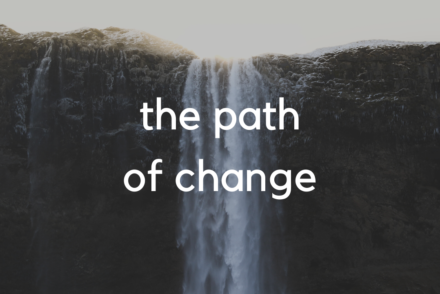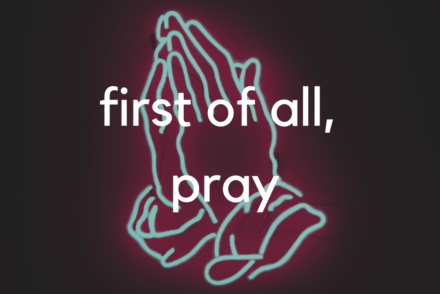Do you know where your time is spent? Outside of the obligations of work, eating, and sleeping, can you accurately account for the hours God’s given you? How is your free time used? The way you use those precious hours does much to set the trajectory of your life and soul. The small choices we make about how to use that half hour before bed on Tuesday or a Saturday afternoon has lasting impact.
The Apostle Paul said it this way:
Look carefully then how you walk, not as unwise but as wise, making the best use of the time, because the days are evil. Therefore do not be foolish, but understand what the will of the Lord is. (Ephesians 5:15-17)
Because the days are evil
We don’t have the option of floating along passively through our days and hours. “The days are evil,” the Apostle writes. Time is a tool that, if not taken in hand and used, will be used as a weapon against you. There are malevolent forces at work behind the scenes, striving to keep you and I from putting our time to work.
You’ve seen this, haven’t you? The inertia of over-consumption that causes us to slide into letting that next episode play or sleeping just ten minutes more (ok, actually, it was 30). The internet has brought us into a maelstrom of time-wasters. We can look up after watching several “just one more” youtube videos to discover a whole evening has gone by.
Generally we shrug off those wasted hours with a slight pang of passing guilt only to find ourselves doing the same thing a few days later, not realizing that each of those moments is often a defeat of our soul.
Making the best use of the time
We are to be people who make the best use of the time. Note that this does not mean we should always be working hard and being productive. Ecclesiastes says that there is a time for everything. God commanded humanity to make space for intentional rest when he set aside the Sabbath. Jesus pulled away regularly to be alone.
The question here is how do you use time for all it’s worth, regardless of what it is you’re doing. How do you rest fully? How do you be productive and focused? How do you engage fully in the conversation you’re having?
Not as unwise but as wise
Making the best use of your time requires wisdom. The wisdom to know when you need to push harder and work through the tiredness as well as when you need to pull back and say no to commitments so you can rest.
This kind of wisdom requires an attentiveness to our own minds, bodies, and souls. Do you know the physical symptoms of when you’re lacking sleep? Do you know the emotional cues that will warn you you’re getting overwhelmed? Wisdom is necessary, and it’s not something we just stumble into.
Look carefully at how you walk
Growing in that kind of wisdom takes a kind of conscious living that the rush of western culture strongly opposes. It takes a stepping back from the moment to evaluate and “look carefully at how you walk,” noting the nuances of who we are, who God is, and what is going on around and within us.
If we are to follow in Jesus’ steps there needs to be an intentionality behind how we spend even our downtime. Our hours of rest are to be redemptive, not wasteful. Our hours of work should be full-on, focused and effective. Our time with friends and family should be rich with our true, full presence rather than shot through with divided attentions.
Are you making the most of your time? Are you looking carefully at how you live your life and taking intentional steps to live out of the wisdom of God in Christ?
Two practical tools
Using time wisely isn’t easy in a world where there are a hundred time wasters at our fingertips and equally as many legitimately positive uses for our time. Here are two tools that I’ve personally used consistently over the last decade to regularly evaluate how I’m doing with making the best use of the time God’s given me.
Regular Time Tracking
The average person doesn’t actually know where their time is going. Just like knowing where your money is going is a crucial step towards managing it well, so tracking your time and knowing where it’s being spent is essential for being able to use it well.
Once or twice a year I like to set aside a two week period where I actively track how my time is used from when I wake up until I go to sleep. I generally use a spreadsheet like this one, or google “time tracking worksheet” and print one out, and then pause periodically throughout the day to jot down how I’ve used my time or do so at the end of the day before going to bed.
Two weeks is an ideal period of time to allow you to capture a solid picture of how your time is used. The exercise is even better if done with a couple friends, which will allow you to meet and discuss what you’ve discovered after the two weeks are done. You’ll never cease to be surprised at how much time you could have if you optimized what you’re spending it on.
The Urgent/Important matrix

After tracking how I’m spending my time I like to evaluate myself using the urgent/important matrix. The matrix is a simple grid for categorizing whether the things you’re spending your time on are urgent or important, or neither. It deserves a more in-depth treatment than I want to spend on it in this post, but there are several great resources online about it. Our default is to focus on the things that are urgent but not necessarily important. Filtering your time through this grid can release you to focus on the things that truly are important.
Hopefully those two tools empower you to use your time well. When we’re intentionally directing our time wisely (and not unwisely) I believe we’ll discover an amazing increase in joy, peace, love, and hope and see a significant multiplication of the impact we can have in the midst of these “evil days”. The Kingdom of God is near. Let’s get after it.





No Comments